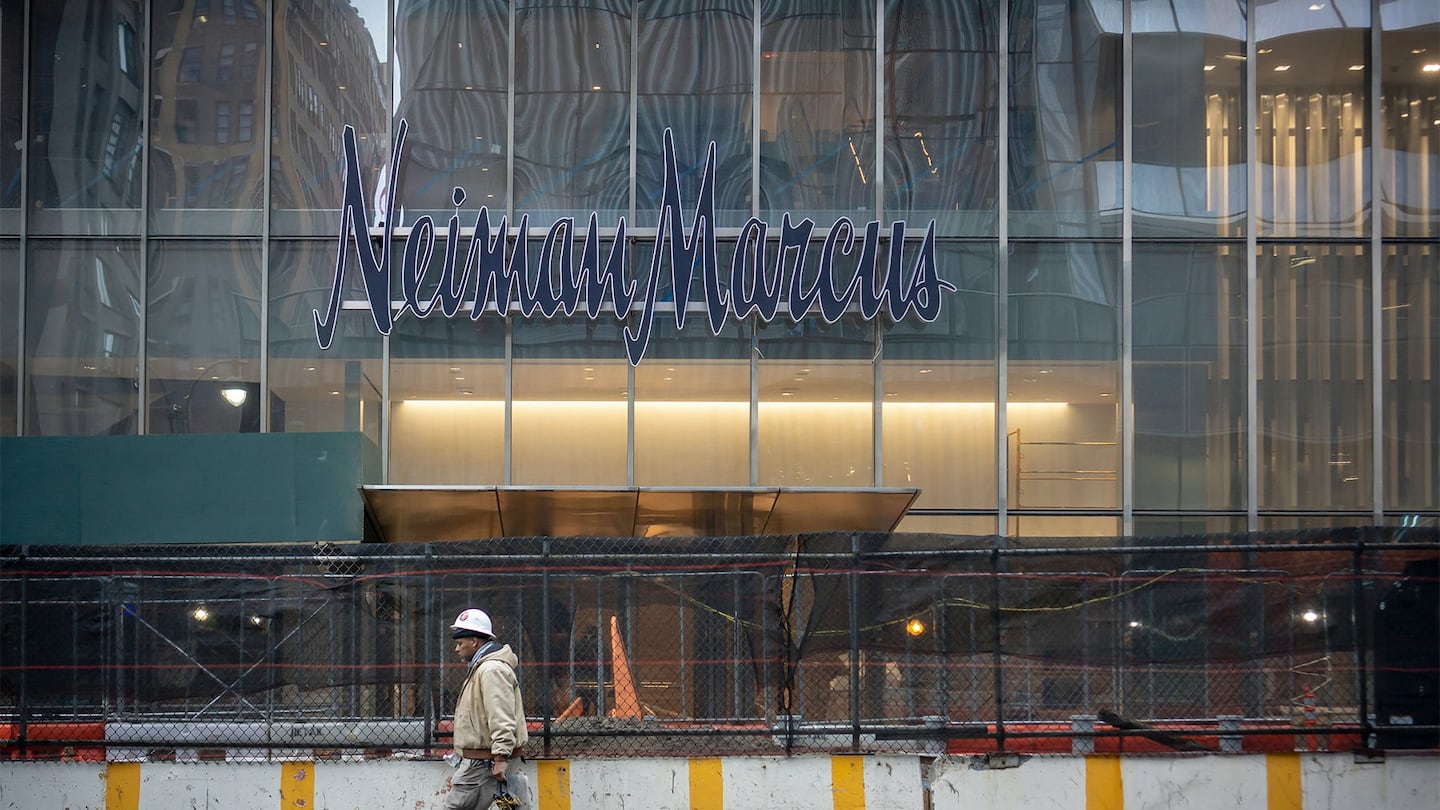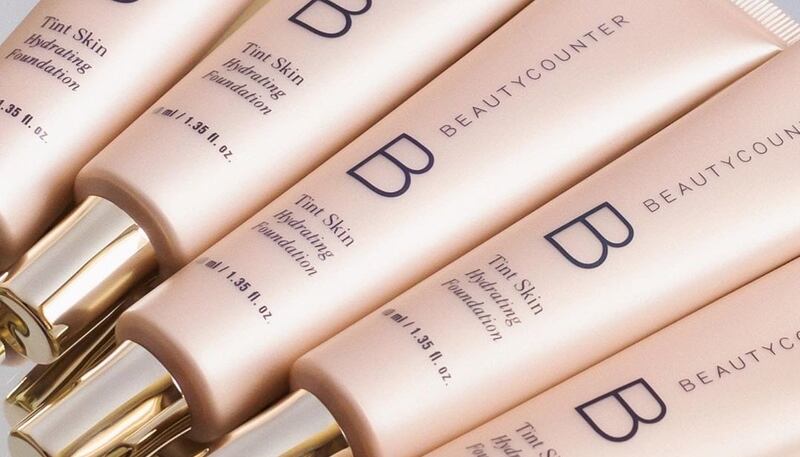
The Business of Fashion
Agenda-setting intelligence, analysis and advice for the global fashion community.

Agenda-setting intelligence, analysis and advice for the global fashion community.

Hello BoF Professionals, your exclusive 'This Week in Fashion' briefing is ready, with members-only analysis on the key topic of the week and a digest of the week's top news.
Neiman Marcus is on the verge of filing for bankruptcy protection, becoming the first major American department store chain to succumb to the coronavirus crisis, which has forced thousands of store closures and crashed consumer demand for non-essential luxury goods.
Neiman has long struggled with a hefty debt burden, now amounting to $4.8 billion, assumed under 15 years of private equity ownership, making it particularly vulnerable. Indeed, the weight of more than $300 million in annual interest payments has made it virtually impossible for the company to service all of its debt and turn a profit. The company missed an interest payment last week and has furloughed most of its 14,000 workers.
According to market reports, Neiman is currently in talks to secure over $500 million in bankruptcy financing and lenders expect the business to survive, perhaps under new ownership. The group's trophy assets, Bergdorf Goodman and MyTheresa, could be the target of opportunistic acquisitions, and the distressed Neiman Marcus business could be snapped up by rival Saks Fifth Avenue. But the outlook is grim.
ADVERTISEMENT
By no means is this former titan of luxury shopping alone. Lord & Taylor, which let its entire executive team go this month, is considering bankruptcy. J.C. Penney has been weighing debt-restructuring options, including Chapter 11 protection, and is currently negotiating a debtor-in-possession loan with multiple banks to ensure liquidity for its operations during bankruptcy. Meanwhile, Macy's may borrow against some of its real estate to keep its head above water.
Nordstrom was comfortably profitable before the crisis and, despite its $2.7 billion debt load, is not immediately at risk of defaulting. But, like many of its peers, the chain is suffering severely from store closures and has been forced to cancel orders and defer payments to vendors.
It's not just American chains that are veering towards collapse. In the UK, Debenhams filed for administration and liquidated its Irish business earlier this month, while House of Fraser was forced to shut seven of its 59 branches even before lockdowns began. In Germany, Galeria Karstadt Kaufhof filed for administrative insolvency in early April. And, in recent weeks, Australia's Myer has shed 10,000 workers and struggled to stay afloat.
The current crisis has been crippling, reducing sales to virtually zero. But the root of the problem goes far deeper. Many of these chains have been on the wrong side of history for years.
Over the last decade, the rise of e-commerce has not only eaten into sales but fundamentally rewired consumer behaviour, meaning the fundamental problem that department stores once solved is no longer a problem. Who needs to buy everything under one roof when Amazon is the new "everything store" and specialist retailers are only a click away? What's more, the shopping malls that department stores so often anchor have become increasingly irrelevant to a new generation of consumers for whom social media is the most popular place to hang out.
Some of the pain is also self-inflicted. Many of these stores have failed to adequately invest in e-commerce or otherwise bungled their digital strategies. Meanwhile, as major brands increased their focus on direct-to-consumer sales channels, too few department stores pivoted their business models from wholesale to concession, allowing brands to run their own shop-in-shops.
Many of these chains have also displayed an incredible lack of imagination. Shopping across a selection of brands remains highly valuable to consumers, but as shoppers became more sophisticated and brands launched temple-like flagships, too many department stores continued to offer homogenised merchandise in uninspiring settings, failing to deliver the curation, experience and entertainment factors that made outliers like Selfridges and Dover Street Market (the anti-department store department store) appealing places to spend time.
Now, as coronavirus accelerates the decline, traditional department stores are almost certain to have a radically reduced footprint in the fashion industry of the near future: some will be forced to significantly scale back their store counts, while others will simply shutter.
ADVERTISEMENT
What will the fashion landscape look like as these once-mighty department stores falter?
Consumers may not miss these stores too much. Convenience is now better delivered online and the sense of curation and discovery that department stores once offered long ago shifted to platforms like Instagram and its army of influencers from whom shoppers now get their cues.
Designers may not shed too many tears either. Few emerging labels will miss the onerous terms and chronically late payments to which department stores have long subjected them. Then, there's the matter of discounting. Department stores, particularly in the US, have played a corrosive role in normalising perennial discounts, training shoppers away from full price and resulting in a race to the bottom that damages profitability and brand equity. Now, with a glut of unsold inventory in the market, some department stores are already breaking ranks and holding early "friends and family" sales and sending "VIP" offers on summer collections.
To be sure, department stores still account for a large chunk of sales revenue for many labels, but the waning of these chains may force more brands to deepen their relationships with end consumers, foster online communities and leverage e-commerce to build robust direct-to-consumer sales channels, which could ultimately make them far stronger.
Make no mistake, the coronavirus pandemic will result in a poorer world with less interest in fashion goods and the fall of department stores will be felt by brands big and small. And yet, when lockdowns are lifted and the economy finally bounces back, we are likely to see a resurgence in our desire to get dressed and new demand for compelling multi-brand shopping.
The space ceded by department stores will create fresh opportunities for specialised, independent, multi-brand boutiques with real points of view, sharper product selections, true personal service, engaging store experiences and real relationships with local clients and local communities, carefully cultivated both digitally and in real life — a sort of “back to the future” of fashion retail. And for many, this will be just the kind of retail experience they will be longing for when the crisis passes.
— Vikram Alexei Kansara
THE NEWS IN BRIEF
ADVERTISEMENT
FASHION, BUSINESS AND THE ECONOMY

A Victoria's Secret campaign | Source: Courtesy
Sycamore Partners hopes to end Victoria's Secret deal. The private equity firm filed a lawsuit to argue it should be allowed to terminate the deal to acquire 55 percent of Victoria's Secret from L Brands for $525 million. The news sent L Brands stock price plummeting 16 percent on Wednesday. L Brands filed its own suit against Sycamore the following day. The apparent demise of the deal points to broader turmoil behind the scenes in the retail sector, which has been devastated by the coronavirus pandemic.
Gucci sees 22 percent first-quarter revenue drop amid coronavirus outbreak. Overall, Kering saw a group-wide decline of 15.4 percent, with Saint Laurent's sales falling 13 percent. The results highlight the extent to which Kering depends on sales in China as many brands were forced to lose their stores in January and February. Meanwhile the rate of recovery remains uncertain due to the spread of Covid-19 across the West, causing brands to also shut stores in Europe and the US.
Hermès weathers coronavirus storm better than luxury rivals. The Parisian house saw a 7.7 percent drop in first-quarter sales compared to declines of 15 percent or more reported by other luxury groups. Hermès has long been one of the steadiest performers in the luxury goods industry, in part due to its careful management of production and stocks, which have maintained its reputation of exclusivity.
Moncler hopes for rebound in second half of 2020. Analysts on average expect Moncler's sales to fall by 6 percent in 2020, better than most rivals, because most of its sales usually take place towards the end of each year. After years of strong growth, Moncler said it would shelve non-essential projects in order to achieve a 30 percent reduction in total capital spending.
British government suspends commercial evictions. The move comes after trade bodies wrote a letter to Chancellor Rishi Sunak seeking rental support. The minister added that the government is working with banks and investors to seek ways to address these issues after rent collection for March quarter date fell by 28.7 percent in the UK.
Bangladesh garment workers break lockdown to protest wages. The government launched a $588 million package to help companies in the garments sector pay staff, but manufacturers have said it is not enough. Bangladesh is estimated to lose about $6 billion in export revenues this year as retailers and brands across the world cancel orders. Meanwhile, a group of employers' organisations, unions and major brands in the garment industry are working with the International Labour Organisation to support manufacturers affected by the coronavirus outbreak.
Fashion continues to fall short on social and environmental transparency. Fashion Revolution's annual index shows signs of progress, but the fallout from Covid-19 has revealed how much the industry still needs to improve. Only 11 percent of the 250 brands included in this year's study explained how they ensure labour costs are ring-fenced in their buying practices. Less than a quarter provided details about their approach to achieving a living wage within their supply chains.
Gap suspends $115 million monthly rent payments. The retailer said it may not have enough money to run its operations in the next 12 months. Despite furloughing employees and closing its stores, Gap is in talks with landlords to defer payments, change lease agreements or in some cases terminate the leases and permanently close some of the stores.
Target's online sales jump as shoppers stock up from home. The big-box retailer expects to gain market share in apparel as competitors struggle. Target has seen a 275 percent surge in online comparable sales in April so far, offsetting some of the damage caused by shuttered stores. Even so, Target warned that its margins would suffer due to rising costs like temporary wage increases for frontline workers.
THE BUSINESS OF BEAUTY

Beautycounter | Source: Instagram via @beautycounter
Clean beauty product sales are up 11 percent. Despite the beauty industry's overall decline of 14 percent, clean beauty's commitment to product safety is resonating with anxious consumers. Brands like Beautycounter and Herbivore report an uptick in skincare and body care categories prompted by consumers who, during a public health crisis, increasingly consider cosmetics ingredients.
Luxury prestige beauty brands see increased demand. With spas closed, consumers are turning to high-end brands like Biologique Recherche for at-home facials and virtual consultations. La Prairie and La Mer are likewise outperforming competitors due to standout online sales that are offsetting department store closures.
PEOPLE

Patrick Guido | Source: Courtesy
Lululemon's chief financial officer departs. Patrick Guido is stepping down as chief financial officer of Lululemon effective May 8 after two years in the role, "in order to assume a leadership position outside of the apparel industry," according to a company statement. Lululemon has begun its search for a successor. In the interim, Meghan Frank, senior vice president, financial planning and analysis, and Alex Grieve, vice president and controller, will lead the finance team and report to Chief Executive Calvin McDonald.
American Eagle appoints a chief financial officer. The brand has promoted Mike Mathias to executive vice president and chief financial officer with immediate effect. Mathias, who was previously senior vice president and head of financial planning and analysis, reports to Chief Executive Jay Schottenstein in his new role. He replaces Bob Madore, who is leaving the company but staying on in a senior advisory role through September 2020.
Boohoo announces board changes. The fast-fashion online retailer has added Kath Smith, former EMEA general manager for The North Face, to its board as an independent non-executive director effective May 1. Smith also sits on the board of JD Sports, and has previously sat on the boards of Adidas UK, Adidas Ireland and Reebok Ireland. The company also announced that Sara Murray will step down as non-executive director, with Deputy Chairman stepping in to fill her positions as nomination committee chair and senior independent director.
MEDIA AND TECHNOLOGY
Vestiaire Collective raises €59 million in latest funding round. The money, which was raised by investors including Korelya Capital, Vaultier7 and Cuir Invest, will be used to help the company break into Japanese and Korean markets while doubling down on US expansion and social commerce efforts. The company's total fundraising is now at €209 ($223) million.
Report: Amazon deploys thermal cameras to scan warehouse staff. The e-commerce giant has rolled out the technology in at least six warehouses outside Los Angeles and Seattle, according to employees and social media posts. Cases of the virus have been reported among staff at more than 50 of Amazon's US warehouses. The thermal cameras are an attempt by Amazon to contain the virus' spread without shuttering warehouses essential to its operation.
Shopify to offer loan advances for small businesses in Canada. Through the e-commerce company's financing program, 'Shopify Capital,' the advances would be repaid through future sales and would range from C$200 ($140) to C$500,000 ($350,895) per eligible merchant. Approval will be through an online application process and will take a few days, the company said
BoF Professional is your competitive advantage in a fast-changing fashion industry. Missed some BoF Professional exclusive features? Click here to browse the archive.
Nordstrom, Tod’s and L’Occitane are all pushing for privatisation. Ultimately, their fate will not be determined by whether they are under the scrutiny of public investors.
The company is in talks with potential investors after filing for insolvency in Europe and closing its US stores. Insiders say efforts to restore the brand to its 1980s heyday clashed with its owners’ desire to quickly juice sales in order to attract a buyer.
The humble trainer, once the reserve of football fans, Britpop kids and the odd skateboarder, has become as ubiquitous as battered Converse All Stars in the 00s indie sleaze years.
Manhattanites had little love for the $25 billion megaproject when it opened five years ago (the pandemic lockdowns didn't help, either). But a constantly shifting mix of stores, restaurants and experiences is now drawing large numbers of both locals and tourists.